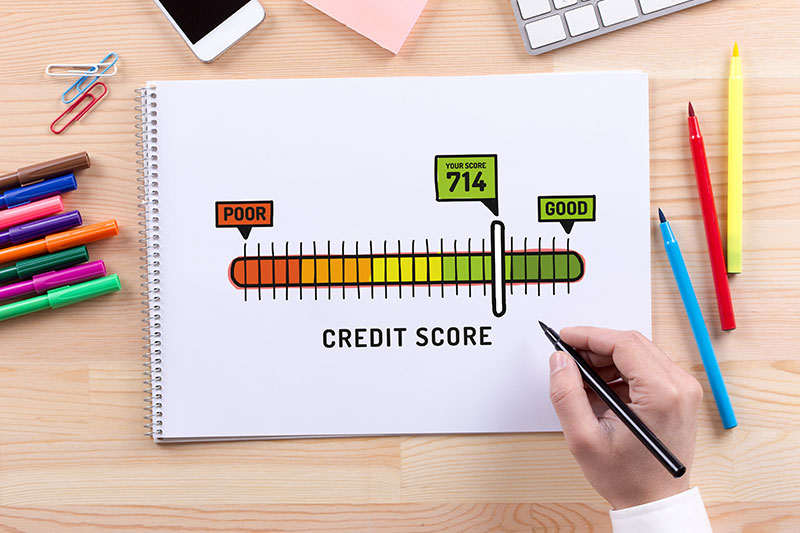When you apply for a loan of any kind, the bank will look at whether you are salaried or self-employed, your income, existing loans and your credit score. Since the credit score is an indicator of how likely you are to repay the loan, it holds
a lot of weightage for lenders when considering loan applications. The credit score may in some cases, be the determining factor for the bank to grant you a higher/lower interest rate or even approve/reject your loan application.
A credit score is a number between 300 and 900. The higher the score, the better are the chances of your loan application getting approved. If you have a high credit score you may also get a higher loan amount or lower loan rates. This applies
more in case of unsecured loans, such as personal loans, education loan, and credit cards than secured loans such as a home loan or car loan.
You may not get to know how much weightage the bank assigns to the credit score, as it depends on the bank’s internal risk and lending policies. Due to this reason, it is possible that what may be a good score for one bank, may not be so
for another bank. Hence, one bank may approve the loan application of a borrower who has a score of say 650, while another may not.
So, is there is a standard for what is a good credit score? Or what score will make a borrower eligible for a loan?
Low-risk borrower
Broadly speaking, any score above 750 is considered a good score, or in other words, a low-risk customer. If you have a score above 750 and apply for a loan, there are very high chances that your loan application will
be approved. Also, your loan may be sanctioned faster. The bank may either offer the best interest rate it can, or a more relaxed repayment tenure or perhaps both. This shows the bank is confident that you will repay the loan on time.
High-risk borrower
Any score below 750 reduces your chances of getting a loan. If it is closer to 750, say 600 to 750, you may find some banks willing to lend you a loan, but the amount could be lower than what you asked for. Or the bank may charge you a higher
interest rate. Your application could take time to process too, as the bank will take time to verify your details and conduct due diligence into your past borrowing history. If your score is in this range, a better option would be to take
steps to improve your credit score and then apply again for the loan. This way you can improve your chances when you apply for a loan again and also get the loan on the terms and conditions you want. This process could take time, maybe up
to a year or so.
[Also Read: How To Improve Your Credit Score?]
If your score is below 600 it is unlikely that any bank will be willing to lend you a loan, since you would be considered a high-risk borrower. In such a case it is advisable to try and find out why your credit score is low. It could be due to past behaviour, such as consistently missing or delaying past EMIs, excessive purchases made on credit, or applied for loans or credit cards with many banks, etc. In this case, you have no other option but to work
on improving your credit score before applying for fresh credit.
Disclaimer: This article is for information purpose only. The views expressed in this article are personal and do not necessarily constitute the views of Axis Bank Ltd. and its employees. Axis Bank Ltd. and/or the author shall not be responsible for any direct / indirect loss or liability incurred by the reader for taking any financial decisions based on the contents and information. Please consult your financial advisor before making any financial decision.








